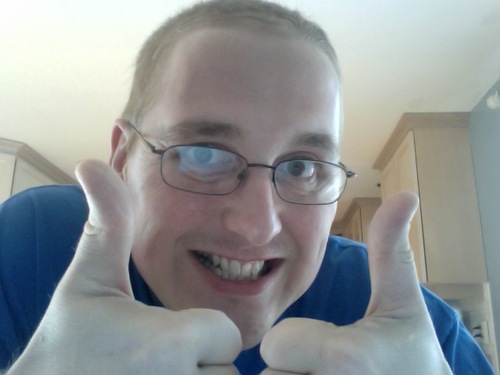It’s not the first time Dave Beazley made the drive from Chicago to PyCon, but it’s the first time he buckled up a piece of history to join him on the trip. After giving two tutorials on Python 3, Dave brings out his 1979 OSI Superboard II for an old school meets new school mashup which is sure to raise a few eyebrows and bring back memories for some.
“The Superboard II was the first computer on which I learned to program back in the late 70s,” said Dave when asked how he came about the machine. It sat in his parents’ basement until Eric Floehr mentioned it at a recent SciPy conference. From there he called his brother who brought it out to Chicago, and “much to our amazement, it still worked.”
After figuring out the cassette audio interface, his concurrency and distributed computing interests had to find a way in. He decided to use ZeroMQ and Redis. Just for good measure, he went with Python 3 for the project. Because of that, he did have to spend a few hours porting Py65.
The port to Python 3 might have been easier for him due to his experience with the changes in the I/O system -- the topic of his Mastering Python 3 I/O tutorial. While the first revision of his port only took 15-20 minutes, he says “I don't want to give anyone the impression that they can just take some arbitrary library, run it through 2to3, and have it working over their coffee break. You really have to understand Python 3's I/O model and know what you're doing.” Attending his tutorial would certainly help you in that area.
Dave’s tutorial double duty also involves a joint presentation with Brian Jones titled Cooking With Python 3. They plan to cover the new features, the differences, and their experiences in porting. The pair are also teaming up to write the third edition of the Python Cookbook, which is going to be all about Python3, expected to hit the shelves in late 2011.
Since all of his tutorials and talks are Python 3 based, I wanted to ask him some general questions about where Python 3 is. “I think that the adoption of Python 3.x is proceeding just fine,” he says. He mentions the porting of NumPy as work “that will pave the way for others to start playing with [Python 3] and porting other packages.” On the whole, after mentioning that wide scale adoption was estimated to be around five years, he says it’s still too early to make a judgement on it.
However, he says “I do think that Python 3 presents developers with many possibilities to create new libraries and packages.” Additionally, “if you're going to port old code, it's a good opportunity to clean it up (since Python 3 breaks everything anyways, you can use it as excuse to get rid of all of those deprecated features that you're keeping around for backwards compatibility).”
He’s no stranger to Python conferences, getting his start in 1996 and attending most of the US conferences since then, plus PyCon UK in 2008. One of his trips was even last minute, deciding just days before that it’d be a fun time to attend one of the PyCons in Washington, D.C. Asked about his favorite part, he says “For me, the best part of the conference is the people. [...] It's a smart group and I always go home with ton of new ideas.”
We’re looking forward to all of the diabolical things he has planned and hope you are too. If you haven’t bought tickets, hurry up. A last minute trip probably will not work out for you like it did for Dave.


Comments